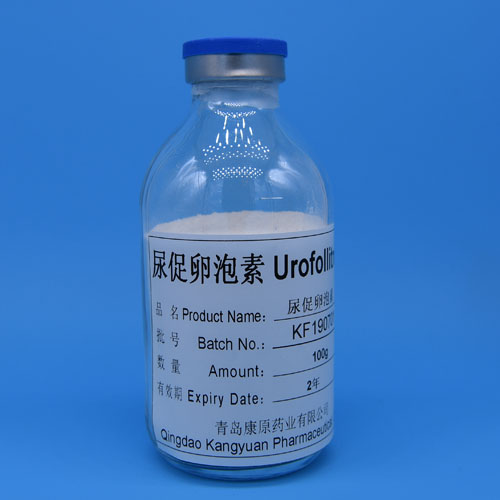Urofollitropin is used for the treatment of infertility in women by
stimulating egg production in the ovaries. It is a follicle-stimulating hormone
(FSH) that is produced in a laboratory setting using recombinant DNA
technology.
Urofollitropin is administered via injection into the muscle or under the
skin. The dosage and duration of treatment will vary depending on the patient's
medical history, the cause of infertility and their response to the
medication.
Before starting treatment with urofollitropin, patients should undergo a
thorough medical evaluation, including a physical exam, blood tests, and a
transvaginal ultrasound. This will help determine the underlying cause of
infertility and the appropriate treatment course.

It is important to note that urofollitropin should only be used under the
supervision of a licensed healthcare professional. Patients should follow all
instructions given by their doctor, including the timing and dosage of
injections, as well as any potential side effects or complications.
Possible side effects of urofollitropin include headache, nausea, vomiting,
abdominal pain, bloating, and ovarian hyperstimulation syndrome. Women who
experience severe or persistent side effects should contact their doctor
immediately.
In conclusion, urofollitropin is an effective treatment for infertility in
women, but it should only be used under the guidance of a healthcare
professional. Patients should follow all instructions and closely monitor for
any potential side effects.